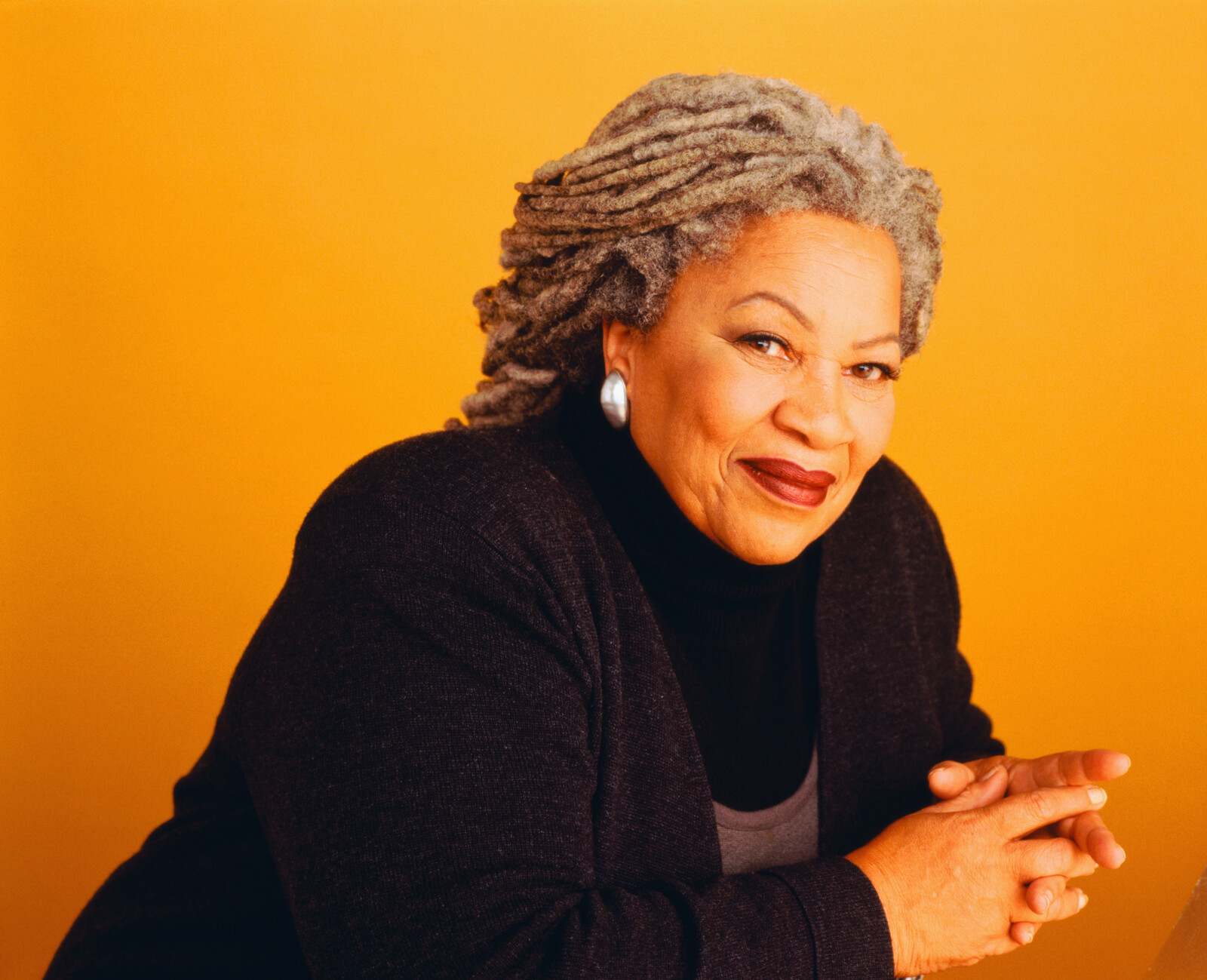Featuring films, panels and highlighting the literary fellowship created in Morrison’s honor
February 28–29, 2024
The Africa Institute, Global Studies University (GSU) (Sharjah, United Arab Emirates)—a center for research, documentation, and study of Africa and its diaspora—will host a two-day symposium celebrating the life and legacy of literary icon Toni Morrison on February 28–29, 2024, at The Africa Hall, in Sharjah. The program will also be recorded and shared on the institute’s YouTube channel.
This special event inaugurates the Toni Morrison Senior Fellowship in African Diaspora Literature and Cultural Studies, featuring two film screenings, including one by Morrison’s son, and insightful discussions on her legacy.
“Toni Morrison was not only a novelist but a theorist of the first order. From The Bluest Eyes to Beloved, she turned her unapologetic gaze inward while being mindful of the white gaze, and in the process, she humanized and complicated the inner soul of African Americans and their agency. Her theoretical work complemented her storytelling with the most eloquent meditations on gender, race, and class in the context of the black experience in America. This body of work will remain a source of inspiration for generations to come,” said Salah M. Hassan, Director of The Africa Institute (GSU) and Distinguished Professor, Cornell University, USA.
The symposium shines a spotlight on Morrison’s artistic genius through screenings of two powerful films. The Pieces I Am (2019, 120 minutes) is directed by Timothy Greenfield-Sanders, and offers an intimate exploration of Morrison’s life and work with interviews of renowned figures like Hilton Als, Angela Davis, and Oprah Winfrey. The Foreigner’s Home (2018, 57 minutes) is directed by Rian Brown and Geoff Pingree, and produced by Ford Morrison, Toni Morrison’s son, “The Foreigner’s Home” delves into her 2006 Louvre exhibition, using exclusive footage and archival materials to illuminate her profound insights on race, identity, and the transformative power of art. Following each screening, invited scholars and critics will discuss Morrison’s artistic vision and its lasting impact.
The program will also highlight The Africa Institute’s recent launch of the prestigious Senior Fellowship in honor of Toni Morrison. The fellowship is aimed at supporting established scholars and independent thinkers who have made significant contributions to African and African Diaspora literature and cultural studies. The first recipient of this fellowship is Philathia Bolton, Associate Professor of English at The University of Akron, Ohio.
“My being selected as the first scholar to have her research supported by the Toni Morrison Senior Fellowship brings me great joy and feels highly significant,” said Professor Bolton. “I will be a US scholar from her home state of Ohio in a different cultural context writing, researching and speaking about her, this iconic person whose works resonated across the globe. I am humbled by this and feel most honored.”
Toni Morrison (1931–2019), a Nobel Prize-winning author, was a literary trailblazer whose profound works redefined American literature and explored themes of identity, race, and the human experience with unparalleled depth and insight. Her legacy resonates as a powerful voice for social justice and cultural understanding.
Speakers during the event include:
Keynote address
Farah Jasmine Griffin, William B. Ransford Professor of English and Comparative Literature and African American Studies, Columbia University.
Speakers
Ford Morrison, Architect, Plasma Physics Laboratory, Princeton University, New Jersey / Margo Crawford, Edmund J. and Louise W. Kahn Professor of English, University of Pennsylvania / Riché Richardson, Professor of African American Literature, Cornell University / Manthia Diawara, University Professor of Comparative Literature and Cinema Studies, New York / Philathia Bolton, Associate Professor of English, The University of Akron, Ohio, and Inaugural Toni Morrison Senior Fellow, The Africa Institute, Global Studies University.
About The Africa Institute
The Africa Institute is a globally oriented institution of research, documentation, study and teaching of Africa and its diaspora, in the humanities and social sciences. It is conceived as a research-based think-tank, and a postgraduate studies institution (offering both master’s and PhD programs, and diplomas in African Languages and Translation), which aims to train a new generation of critical thinkers in African and African diaspora studies. The Africa Institute is proposed to be a model center of excellence in research, teaching, and documentation that is hoped to match in quality and breadth of coverage, existing peer of African and African Diaspora Studies in Africa, Europe, and North America. The Africa Institute is now integrated into the newly established Global Studies University (GSU) to form one of its networks of semi-independent institutes and colleges, each concentrating on different regions of the world. These globally oriented institutions aim to focus on postgraduate studies, research, and documentation of histories, cultures, and peoples who constitute different regions of the world. The next entity to be officially established in 2024 is The Asia Institute, College of Asian Studies. Preparations are also underway to launch additional colleges and institutes that will focus on the regions of Oceania, Europe, and the Americas in the next few years. The Africa Institute is led by Director Dr. Salah Hassan and President, Hoor Al Qasimi. Visit theafricainstitute.org for more information.
About Sharjah
Sharjah is the third largest of the seven United Arab Emirates and the only one bridging the Arabian Gulf and the Gulf of Oman. Reflecting the deep commitment to the arts, architectural preservation and cultural education embraced by its ruler, Sheikh Dr Sultan bin Muhammad Al Qasimi, Sharjah is home to more than 20 museums and has long been known as the cultural hub of the United Arab Emirates. In 1998, it was named UNESCO’s Arab Capital of Culture, and in 2019, it was designated the UNESCO World Book Capital.

